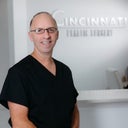Facelift surgery takes several hours (done carefully, completely, and properly) in the operating room, and general anesthesia regimens utilizing "standard" inhalation anesthetics have as high as 30% nausea rate. Vomiting after facelift can cause hematomas requiring re-operation, so even the best surgeons with skillful techniques can have their careful surgery "undone" by post-operative nausea and vomiting (PONV). Overnight stays are one way of trying to compensate for these concerns. Pills, suppositories, and injections of anti-nausea medications don't always work to prevent PONV from these drugs, and sometimes from the narcotic pain medications as well.









